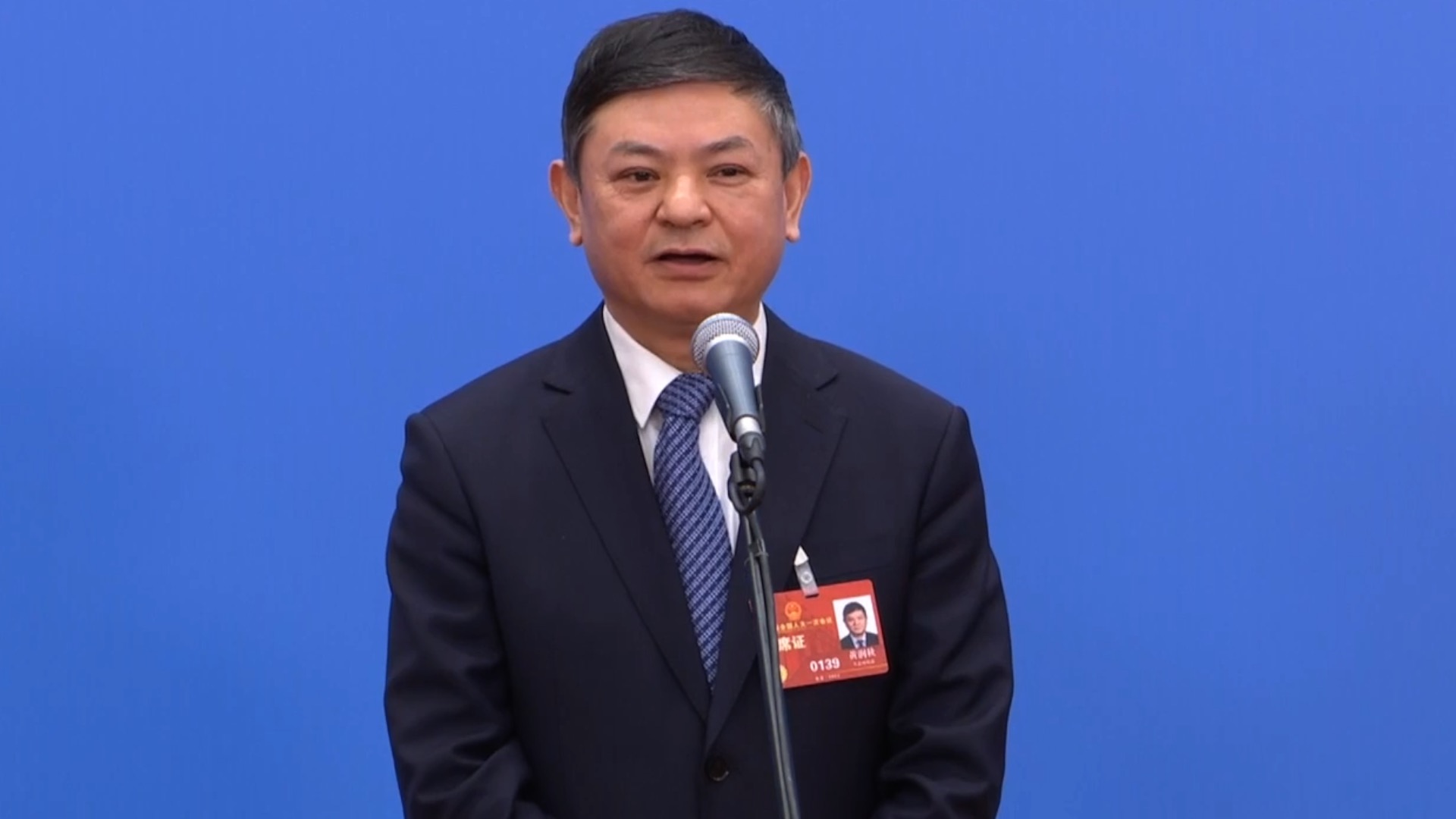Huang Runqiu, Chinese minister of ecology and environment, has said that one of the features of China's modernization is the coexistence between humans and nature.
Speaking at the "Ministers' Corridor" after the opening meeting of the first session of the 14th National People's Congress on Sunday, Huang shared three suggestions based on China's biodiversity conservation for the international community.
19:49

The first is about President Xi Jinping's thoughts on ecological civilization. At the COP15 in Montreal late last year, his thoughts became the theme of the convention, which brought together 20,000 delegates from around the world, and were widely recognized by the international community.
The second is the establishment of a national park system, which integrates the most sensitive areas that are vital for the country's ecosystems. At present, about 30 percent of the land area in China is protected, which is unique to the world, according to Huang.
The third is the large-scale ecological restoration that has been ongoing over the past 10 years. A total of 44 projects for the management of grass and sand systems in mountains, rivers, forests and lakes have been implemented, as well as a large number of mine ecological environment management projects. The United Nations has said these projects are the most encouraging, ambitious and promising examples of large-scale eco-environmental projects. These works also helped improve water quality and the restoration of water ecology in cities. Huang added that, through these attempts, China has achieved a win-win situation of ecological, environmental, social and economic benefits.

The sun sets at the Wuyi Mountains National Park, in southeast China's Fujian Province. /VCG
The sun sets at the Wuyi Mountains National Park, in southeast China's Fujian Province. /VCG
Huang also summarized the achievements of years of ecological restoration. He said, China's PM2.5 density, a key indicator of air pollution, fell 57 percent during the past 10 years. The carbon dioxide emissions per unit of GDP declined by 34.4 percent from 2012 to 2021, and the PM2.5 density dropped 3.3 percent year on year to 29 micrograms per cubic meter in 2022. China will step up its efforts in pollution prevention and control in 2023, according to the minister.
Huang also pointed out that the Ministry of Ecology and Environment will comprehensively promote carbon reduction, pollution reduction, green expansion and growth, and continue to promote the Chinese modernization of harmony between man and nature in the next step.
(If you want to contribute and have specific expertise, please contact us at nature@cgtn.com)